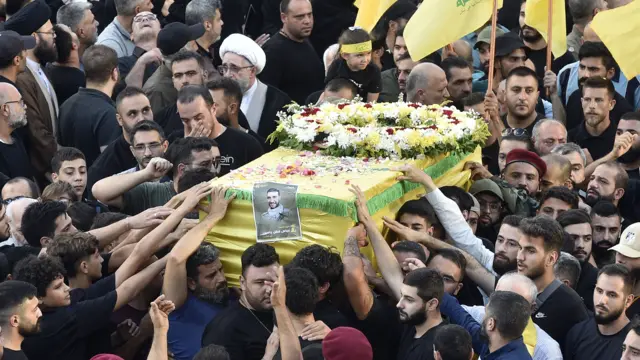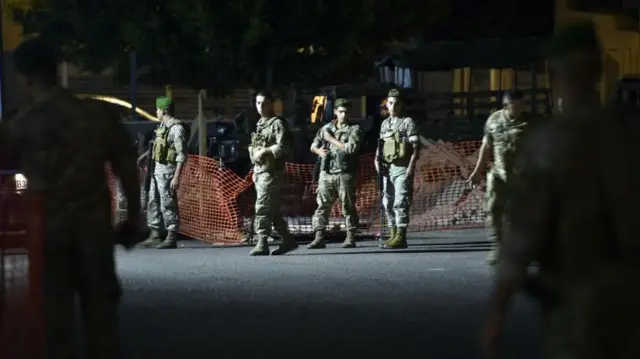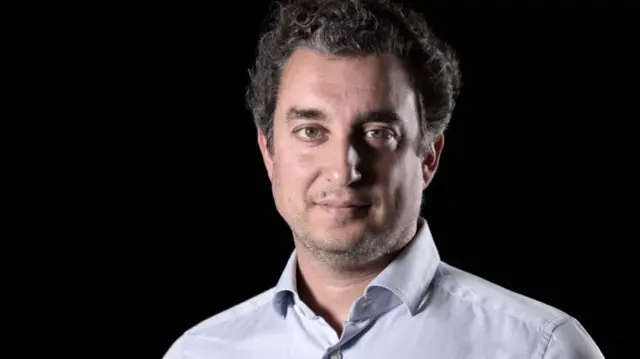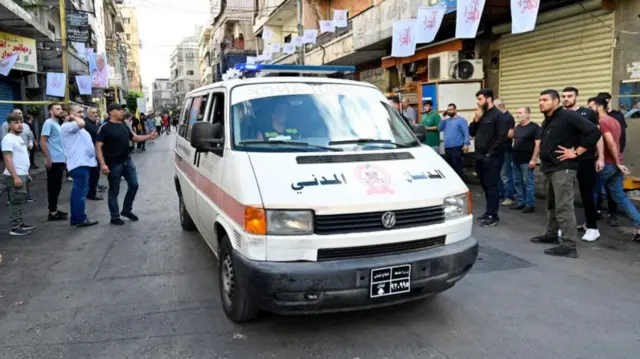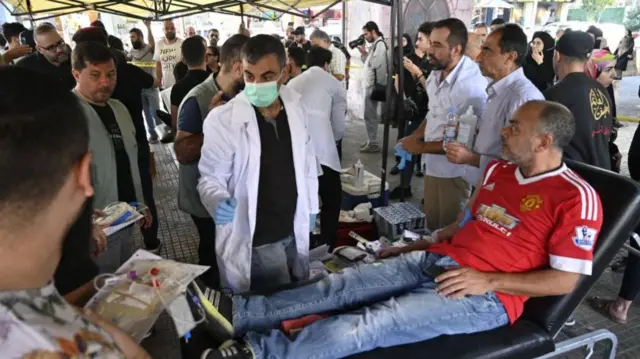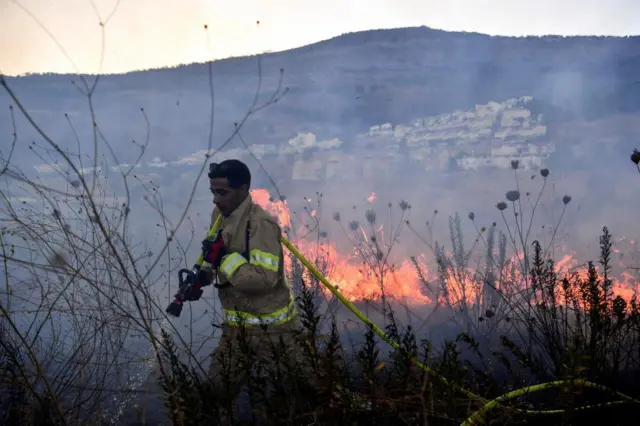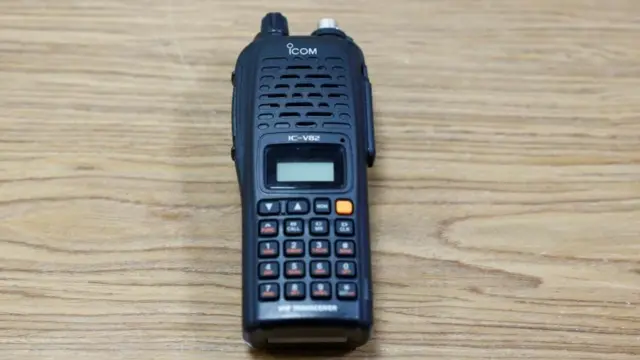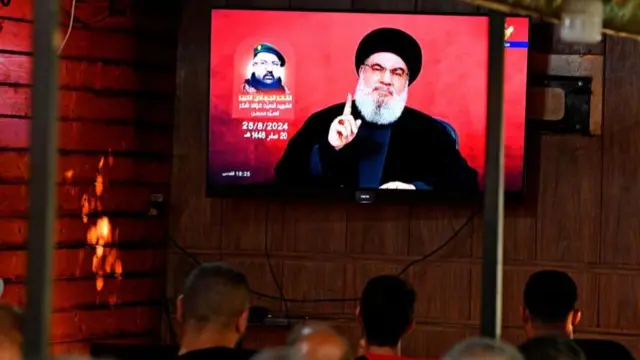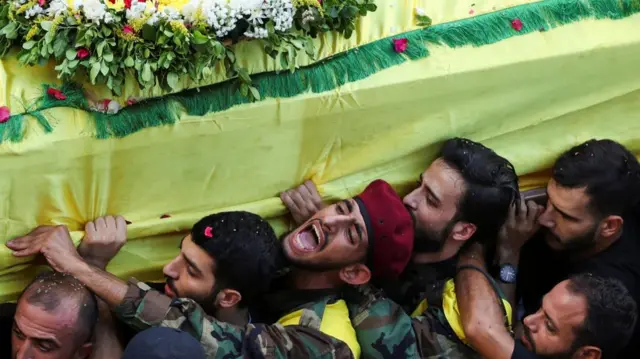Hezbollah leader to deliver speech in wake of deadly attackspublished at 10:25 BST 19 September 2024
 Image source, Reuters
Image source, ReutersHassan Nasrallah, pictured in August 2024
We're expecting Hezbollah's leader, Hassan Nasrallah, to deliver an address about the exploding devices attacks at 15:00 BST.
Nasrallah has yet to speak publicly about the device explosions, but in a statement on Wednesday, Hezbollah vowed to continue its support for Hamas in Gaza and said Israel faced a "difficult reckoning".
The Lebanon-based militant group said it had used rockets to target Israeli artillery positions near the Israel-Lebanon border and in the Israeli-occupied Golan Heights.
Speaking on condition of anonymity, a Hezbollah official also told Reuters that the device explosions were the "biggest security breach" for the group since its conflict with Israel stepped-up after the 7 October attacks that Hamas launched on Israel from Gaza.
Nasrallah, 64, is a Lebanese cleric and since 1992 he has been head of Hezbollah, which is designated a terrorist organisation by the UK, US and other Western states.
